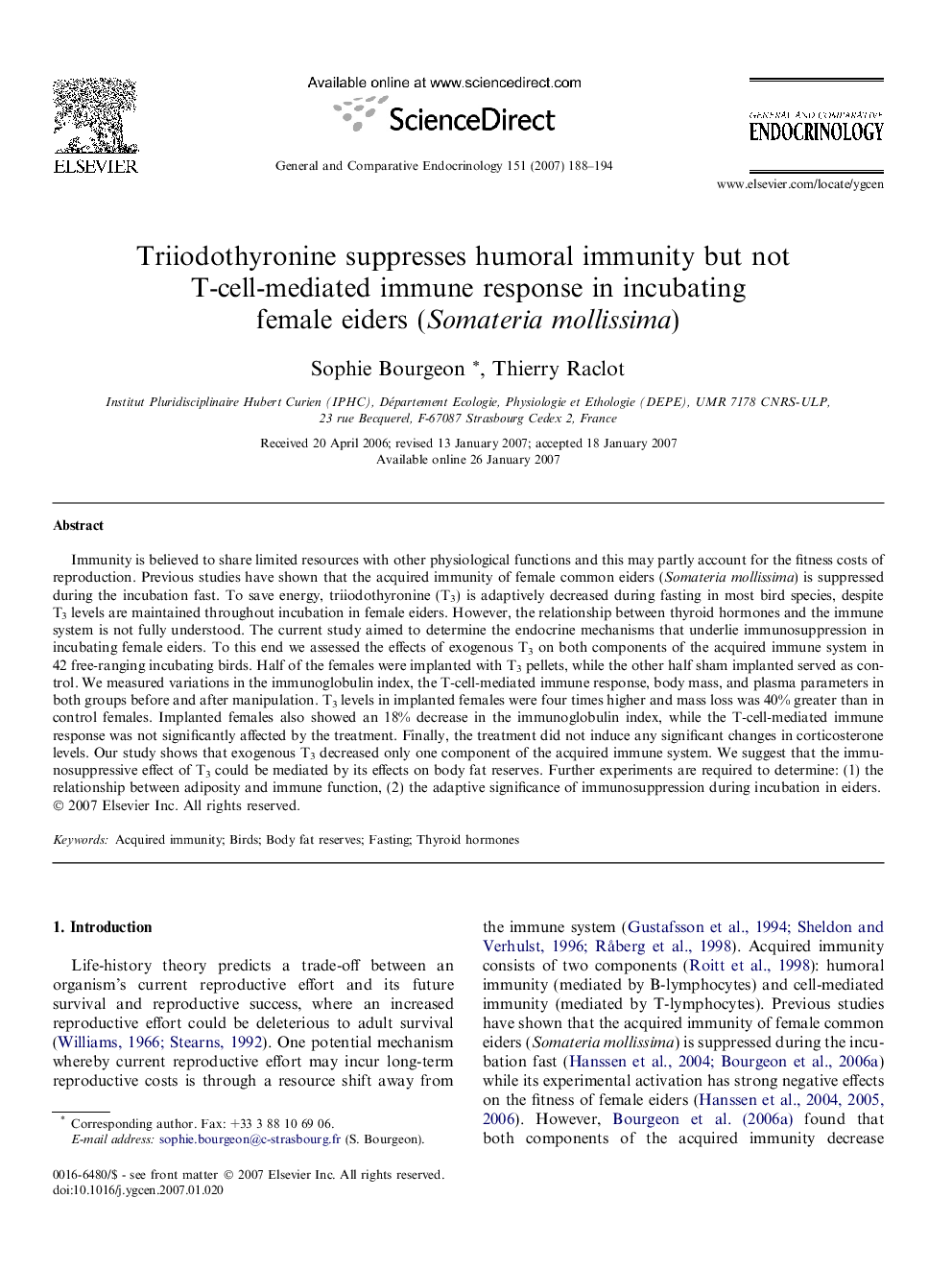| Article ID | Journal | Published Year | Pages | File Type |
|---|---|---|---|---|
| 2802001 | General and Comparative Endocrinology | 2007 | 7 Pages |
Abstract
Immunity is believed to share limited resources with other physiological functions and this may partly account for the fitness costs of reproduction. Previous studies have shown that the acquired immunity of female common eiders (Somateria mollissima) is suppressed during the incubation fast. To save energy, triiodothyronine (T3) is adaptively decreased during fasting in most bird species, despite T3 levels are maintained throughout incubation in female eiders. However, the relationship between thyroid hormones and the immune system is not fully understood. The current study aimed to determine the endocrine mechanisms that underlie immunosuppression in incubating female eiders. To this end we assessed the effects of exogenous T3 on both components of the acquired immune system in 42 free-ranging incubating birds. Half of the females were implanted with T3 pellets, while the other half sham implanted served as control. We measured variations in the immunoglobulin index, the T-cell-mediated immune response, body mass, and plasma parameters in both groups before and after manipulation. T3 levels in implanted females were four times higher and mass loss was 40% greater than in control females. Implanted females also showed an 18% decrease in the immunoglobulin index, while the T-cell-mediated immune response was not significantly affected by the treatment. Finally, the treatment did not induce any significant changes in corticosterone levels. Our study shows that exogenous T3 decreased only one component of the acquired immune system. We suggest that the immunosuppressive effect of T3 could be mediated by its effects on body fat reserves. Further experiments are required to determine: (1) the relationship between adiposity and immune function, (2) the adaptive significance of immunosuppression during incubation in eiders.
Related Topics
Life Sciences
Biochemistry, Genetics and Molecular Biology
Endocrinology
Authors
Sophie Bourgeon, Thierry Raclot,
